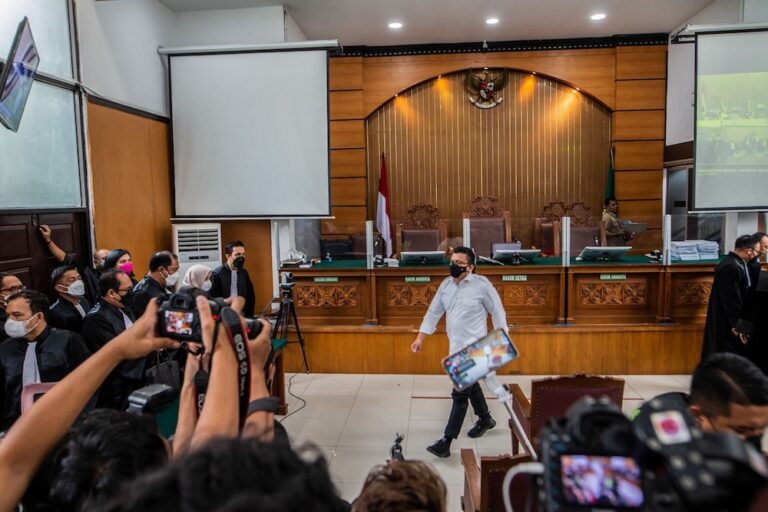(AJI/IFEX) – AJI, a member of the Southeast Asian Press Alliance (SEAPA), has condemned a Central Jakarta District Court’s decision finding “Tempo” magazine guilty of defaming agribusiness giant Asian Agri. The court, presided by judge Panusunan Harahap, ordered the weekly magazine and its editor-in-chief Thoriq Hadad, to pay Rp 50 million (approx. US$5,350) in damages […]
(AJI/IFEX) – AJI, a member of the Southeast Asian Press Alliance (SEAPA), has condemned a Central Jakarta District Court’s decision finding “Tempo” magazine guilty of defaming agribusiness giant Asian Agri.
The court, presided by judge Panusunan Harahap, ordered the weekly magazine and its editor-in-chief Thoriq Hadad, to pay Rp 50 million (approx. US$5,350) in damages and publish a full page apology to Asian Agri and its subsidiaries in the magazine and “Koran Tempo” and “Kompas”
dailies in three consecutive editions.
Though the sentence was lighter than Asian Agri’s demand for Rp 5.5 billion in damages and printed apologies in 16 publications, AJI deplored the use of the courts to suppress press freedom. “The lawsuit was Asian Agri’s way of silencing the media so that they would not publish the tax manipulation case,” AJI President Heru Hendratmoko said in a statement.
“Asian Agri was apparently upset because ‘Tempo’ had repeatedly published [articles about] the issue of the alleged tax manipulation. The case is currently being investigated by the Attorney General’s Office,” Heru added.
The judges said “Tempo” had damaged the companies’ reputation through its investigative report of alleged tax evasion, published in the 15-21 January 2007 edition of the magazine.
“Tempo” lawyer Hendrayana, from Legal Aid for the Press, said the court had rejected many facts during the trial. He said the magazine would appeal the verdict.
The head of AJI’s advocacy division, Eko Maryadi, said their group will support “Tempo’s” appeal.
AJI President Heru observed that civil lawsuits might become the major means of gagging the press. He instead encouraged all sides to settle press-related disputes through mechanisms provided by Law No. 40 Year 1999 on the Press.


